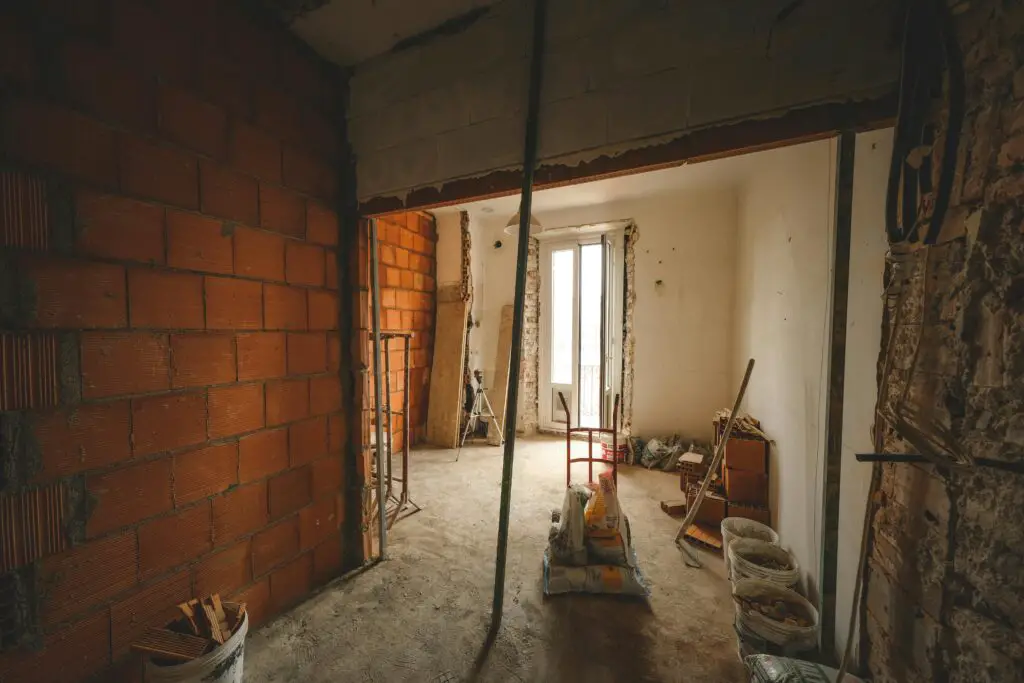1. You Must Put 20% Down to Buy a Home

It’s a common belief that homebuyers need to put down at least 20% of a property’s purchase price, but this isn’t always the case. While putting down 20% does allow buyers to avoid paying private mortgage insurance (PMI), there are several loan programs that require significantly less. For example, the Federal Housing Administration (FHA) offers loans with as little as 3.5% down, and veterans can take advantage of VA loans that may require no down payment at all. Additionally, some conventional loan programs now allow down payments as low as 3%.
These options are available to buyers with strong credit histories and stable financial backgrounds. It’s essential to research all available financing options to ensure you’re choosing the one that best fits your needs. Many first-time homebuyers may be surprised to learn that there are various ways to purchase a home with much less than the traditional 20% down. Sites like Bankrate provide detailed breakdowns of different loan programs and requirements. Being aware of these alternatives can help you plan for a more affordable home purchase. The 20% myth has become ingrained in popular belief, but it’s not a universal rule and shouldn’t discourage potential buyers from pursuing homeownership.
2. Spring Is the Only Time to Buy or Sell a Home

Spring is often regarded as the peak season for real estate transactions, with homes typically selling faster and for higher prices. However, this belief can be misleading for many buyers and sellers. While it is true that there tends to be more inventory available during the spring months, real estate opportunities exist throughout the year, especially in different market conditions. Winter, for instance, can present unique advantages, such as less competition from other buyers and sellers who are more motivated to close deals quickly. Buyers in the off-season may even secure better prices, as sellers are more willing to negotiate.
Additionally, some buyers may find that homes in their desired price range are easier to locate during a less competitive time of year. Each market is different, and it’s important to consider local trends when deciding on the best time to make a move. In areas with milder weather, markets may remain active year-round. For more details on seasonal market shifts, consider checking out Zillow. Real estate markets don’t follow a strict calendar, and opportunities to buy or sell exist all year long, no matter what time of year it is.
3. New Homes Don’t Require Inspections

A newly constructed home may seem like the ideal choice for many buyers, as it’s presumed to be free from wear and tear or potential issues. However, even newly built homes are not immune to problems, and skipping an inspection is a risky decision. Construction defects, such as improperly installed plumbing or faulty electrical systems, can easily go unnoticed, especially if the home is newly finished. An inspection ensures that the builder adhered to local codes and regulations during construction, which can prevent unexpected surprises down the road.
Home inspectors have the expertise to identify potential issues that may not be immediately visible to the untrained eye. Additionally, some homes may not meet the latest safety standards, even if they appear to be newly constructed. A thorough inspection can help you identify costly repairs or necessary improvements before finalizing the purchase. Homebuyers are encouraged to always have a new home inspected to avoid unpleasant surprises later on. To learn more about why home inspections are crucial, visit The Spruce. No matter how new the property is, an inspection provides valuable peace of mind.
4. The Highest Offer Always Wins

Many buyers mistakenly assume that offering the highest bid will automatically secure them the property they want, but this isn’t always true. In competitive real estate markets, sellers often take multiple factors into consideration when reviewing offers. While price is an important factor, other aspects such as contingencies, financing options, and the proposed closing timeline can carry significant weight in the seller’s decision. For example, a buyer who offers a slightly lower price but has fewer contingencies, such as waiving inspection or appraisal requirements, may be more attractive to the seller than someone offering more money but with more conditions attached.
Sellers also often prioritize buyers who are flexible with their closing dates or who are pre-approved for a mortgage. Strong communication and relationship-building with the seller can help sway their decision in your favor, even if your offer isn’t the highest. It’s crucial to approach the home-buying process with a well-rounded strategy that considers all aspects of the deal. To get an idea of what sellers look for in offers, check out Realtor.com. Winning an offer isn’t always about bidding the highest price; it’s about presenting the strongest, most attractive offer overall.
5. Open Houses Sell Homes

Open houses are often seen as an essential part of the home-selling process, but they don’t always result in a sale. In many cases, open houses attract curious neighbors or casual window shoppers who are not serious about buying. While they can help increase visibility and generate buzz around a listing, the most successful transactions usually happen through private showings or targeted marketing efforts. Open houses do provide an opportunity for buyers to explore the property in person, but they are rarely the driving force behind a sale. Private showings, often arranged by real estate agents, allow buyers to have a more personal and detailed look at a home without distractions.
Real estate agents who use strategic online marketing and social media can often generate more serious interest than an open house alone. Sellers who want to ensure their home gets maximum exposure should combine open houses with other forms of outreach. It’s important to work with an agent who understands the local market and knows when and how to use open houses effectively. For more information on the pros and cons of open houses, visit Redfin. Open houses can be helpful, but they are not always the best route for selling a home quickly.
6. Real Estate Agents Are Always Expensive

One of the biggest misconceptions about real estate agents is that their services come with a hefty price tag, but commissions are often negotiable. While it’s true that agents typically receive a percentage of the final sale price, this percentage can vary and is not set in stone. In fact, many agents are open to negotiating their fees, particularly in competitive markets. Some agents even offer flat fees or reduced rates for specific services, making them more affordable for clients on a budget. Additionally, an experienced agent can help you navigate the complexities of buying or selling a home, often saving you more money in the long run by securing a better deal or avoiding costly mistakes.
It’s also important to note that commissions are typically split between the buyer’s and seller’s agents, so each party only pays a portion. Having a knowledgeable agent on your side can ensure that your interests are protected throughout the transaction. The idea that all real estate agents are expensive isn’t always true, and you can find professionals whose fees fit within your budget. To understand more about how agent commissions work, check out NAR. Real estate agents can offer affordable options while still delivering exceptional service.
7. You Should Always Over-Price Your Home to Leave Room for Negotiation

One common strategy some sellers use is to overprice their home, believing that it allows them to negotiate down to their desired price. While this may seem like a reasonable tactic, overpricing a home can backfire. Homes that are priced too high often sit on the market longer, which can lead to price reductions and diminished buyer interest. In a competitive market, buyers quickly learn to avoid listings that are perceived as overpriced.
Buyers may even assume something is wrong with the property if it has been listed for a long time. A home that’s priced competitively will attract more attention and showings, and in many cases, this can lead to multiple offers, potentially driving up the final sale price. Sellers who price their home too high are often forced to reduce the asking price, which can create a perception of desperation and result in a lower sale price than initially anticipated. Working with a knowledgeable agent who can help determine the right market value for the home is crucial. For advice on pricing strategies, visit Realty Times. Pricing your home competitively is often the best approach for achieving a quick sale and a favorable outcome.
8. Renting Is Cheaper Than Owning

Many people believe that renting is always cheaper than owning a home, but this isn’t necessarily true. While renting avoids the responsibility of maintenance and property taxes, monthly rent payments can sometimes be higher than a mortgage payment. In some markets, especially in urban areas, rent can easily surpass what it would cost to own a similar property. Moreover, when you rent, you’re not building equity in a property, whereas with homeownership, your mortgage payments go toward owning the property over time.
Owning a home also allows for tax deductions and potential appreciation in property value, which can make it a better long-term financial investment. On the other hand, renting can be more financially viable for some, particularly those who don’t plan on staying in one place for an extended period. Factors like interest rates, the local housing market, and personal financial situations will influence whether renting or owning is the more cost-effective option. Whether renting or owning is cheaper depends on numerous factors, but it’s important to evaluate both options based on your specific circumstances.
9. You Can’t Buy a Home Without Perfect Credit

It’s a common myth that you need perfect credit to buy a home, but in reality, that’s not always the case. While having excellent credit can help you secure the best mortgage rates, it is not a strict requirement for homeownership. Many lenders offer loans to individuals with fair or even poor credit, though these loans may come with higher interest rates or require a larger down payment. Buyers with less-than-perfect credit may still qualify for various government-backed loan programs, such as FHA loans, which are designed to help people with less-than-ideal credit histories. It’s also possible to work on improving your credit score before applying for a mortgage to secure better terms.
Even if your credit isn’t perfect, it’s worth exploring your options and speaking with lenders who specialize in working with buyers who have diverse financial situations. By shopping around and comparing loan offers, you may find more favorable terms than you expect. For tips on improving your credit score, visit Experian. Don’t let the misconception of needing perfect credit stop you from considering homeownership – it’s possible to buy a home with less-than-perfect credit.
10. Real Estate Is Always a Safe Investment

Real estate is often touted as a safe, reliable investment, but like any investment, it carries inherent risks. While properties typically appreciate over time, housing markets can fluctuate due to a variety of factors, including economic downturns, changes in local demand, or even natural disasters. These fluctuations can cause the value of properties to decline, leading to financial losses for investors. The key to successful real estate investment is timing and research; buying at the right time, in the right market, and with a clear understanding of potential risks can maximize returns.
However, real estate investments are not guaranteed, and investors should be prepared for the possibility of a market downturn. Additionally, property ownership comes with ongoing expenses such as maintenance, taxes, and insurance, which can eat into profits. Investors should carefully weigh these costs and risks before making a purchase. To gain insights into real estate market trends and risks, check out Investopedia. While real estate can be a profitable investment, it’s important to approach it with caution and knowledge of the market.
11. You Should Always Renovate Before Selling

Home renovations can be a tempting way to increase the value of your property before selling, but not all improvements provide a good return on investment. While some upgrades, like kitchen or bathroom remodels, can add significant value, others may not recoup their costs, and in some cases, they can even deter potential buyers. It’s important to focus on updates that are widely appreciated by buyers, such as fresh paint, landscaping improvements, and minor repairs.
Major renovations can take time and money, and sometimes simple fixes or staging can have a more substantial impact. Before embarking on expensive renovations, consult with a real estate agent who can help you prioritize improvements that will make a difference in your specific market. In many cases, making sure the property is clean, well-maintained, and staged effectively can be just as valuable as a full-scale renovation. To get advice on which renovations are worth considering, visit HGTV. Not every renovation pays off, so be strategic in your home improvement decisions before selling.
12. You Can’t Sell Your Home Without Making a Profit

Many homeowners assume that they must make a profit when selling their property, but selling at a loss is not uncommon. In a market downturn, or if you’ve only owned your home for a short period, it’s possible that the value of your property may have decreased, leading to a sale below your original purchase price. Additionally, the costs associated with selling, such as agent commissions, closing fees, and outstanding mortgage balances, can eat into any potential profit.
If you need to sell quickly due to personal or financial reasons, you may not be able to wait for market conditions to improve. In some cases, holding onto the property for a longer period could result in a better financial outcome. Sellers should evaluate their financial situation and consult with a real estate professional to determine whether selling now or waiting is the best course of action. For more information on selling a home at a loss, check out Nolo. Selling a home without a profit is possible, but it’s essential to weigh all factors and consider your long-term financial goals.
13. Real Estate Agents Just Want a Quick Sale

It’s often assumed that real estate agents are primarily motivated by closing a deal as quickly as possible, but the reality is far more nuanced. While some less ethical agents may prioritize speed over quality, the majority of professionals aim to build long-term relationships with their clients. A real estate agent’s success is often tied to referrals and repeat business, which means they have a vested interest in making sure their clients are satisfied with the process.
Successful agents take the time to understand their clients’ needs and work with them to find the best possible outcome, whether that’s getting the highest sale price or securing the perfect home. Moreover, ethical agents are committed to ensuring that the transaction proceeds smoothly and without any costly mistakes. A trusted agent will communicate openly with clients and offer guidance through every step of the buying or selling process. To learn how to choose a trustworthy real estate agent, visit The Balance. Real estate agents are not just looking for a quick sale – they’re focused on client satisfaction and successful long-term relationships.
